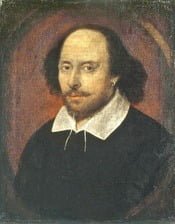An essay is a piece of writing that revolves around a particular theme and contains the academic opinions of the person writing it. A basic essay mainly consists of three parts: Introduction, Body, and Conclusion.
In this post, we have written a brilliant essay on the Role of Poets in a Transitional Society.
Daily Test - Attempt Now

Role of Poets in a Transitional Society
Poetry is not created alone. It’s a job for individuals in society. Poets like Homer, Virgil, Goethe, Valmiki, Vyasadeva, and Kalidasa wrote for their society. Homer and Virgil’s epics tell stories of human history, wars, and gods. The chorus in Greek drama gives social wisdom. Balmiki and Vyasadev’s epics tell stories of people, gods, and wars for justice. Poets have a duty to society to impress social wisdom on common people. In earlier times, court poets wrote patriotic songs and poetry to inspire self-sacrifice and celebrate victory.
Patriotic poetry has been written by many poets like Homer, Virgil, Dante, Chaucer, Shakespeare, Whitman, Wordsworth, Bankimchandra, and Rabindranath. Such poetry inspires young men to fight for their country in times of war, making it socially valuable. From Plato to modern communism, it has been argued that poetry should promote social ideals and virtues, praise great men, and idealize the system. Plato excluded poets from his ideal state as they were seen as liars, defaming gods, softening character, and blurring reality. However, Aristotle defended poetry as presenting a more significant kind of probability than factual history.
Poets respond to social systems in different ways and often take sides in divided societies. For example, Milton attacks the Anglican clergy in Lycidas, while Dryden defends Charles II in Absolom and Achitophel. Milton tries to justify God’s ways to people in a society divided by factions and religious emptiness. Pope’s Dunciad ends pessimistically, warning how people fall from great norms of thought and behaviour.
In India, Bankimchandra Chattopadhyay‘s ‘Bande Mataram’ inspired youths to fight against British imperialism. Kazi Nazrul Islam wrote ‘Bidrohi’ and other poems to encourage people to protest against oppression and exploitation. Rabindranath Tagore fully supported the freedom movement against British Raj, writing many patriotic poems and songs. Sukanta Bhattacharya wrote poems about the oppressed and poor people of society.
In the 19th century, critics and poets upheld the position of poets as moral teachers. The main idea of the 18th-century doctrine was that poetry enlightens human nature, pleasing and instructing by doing so.
During the nineteenth century, it was believed that poetry can be an instrument of moral good by strengthening the imagination, which can lead to a better understanding of human nature. Wordsworth argued that the poet plays an important role in connecting people with each other and with nature, using concrete situations to illustrate important ideas. He believed that the pleasure derived from poetry is essential to human activity.
In the twentieth century, poets became more focused on their personal emotions and experiences and less engaged with society. This was due to the increasing specialization and autonomy of poetry as a cultural practice. Modern poets often use private language and symbols that are difficult for readers to understand, reflecting the weariness and emptiness of the age.
However, both Humanists and Marxists recognized the social and moral function of poetry, although they emphasized different aspects. Humanists saw poetry as a criticism of life and sought to communicate important ideas to readers. Marxists, on the other hand, wanted poets to promote social realism and humanistic values through their work. Both groups rejected Naturalism and Art for Art’s sake, seeing literature as a means of affecting people’s lives in meaningful ways.
Great writers such as Sophocles and Shakespeare are celebrated by Humanists, while socialist realists look up to Tolstoy and Sukanta Bhattacharya. These writers are inspired to create their own versions of human life, portraying it with sympathy and perceptiveness, and showcasing the dignity of mankind and the triumph of the working class. Every authentic work of art enriches the reader’s knowledge of life and enhances their aesthetic sensibility and emotional culture. As a result, poets play an important role as educators, teaching through aesthetic means. Poetry expands human sympathies by conveying experiences.
You Asked, We Listened – Get Free Access to All Writing Lists 😍😍
Also, Read

Essay on an Independent Judiciary in a Democracy

